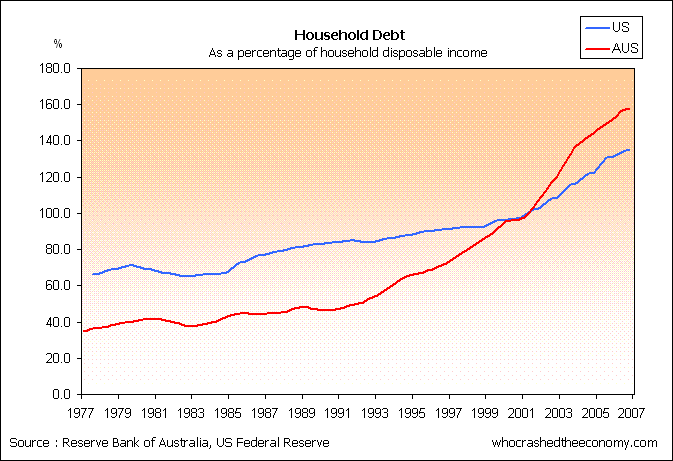I have always had great respect for David Koch until I read this rubbish in the Herald.
http://www.smh.com.au/news/business...1223013835499.html?page=fullpage#contentSwap1
..The banks are already starting to ration credit, making it more difficult for people to borrow. The banks are lifting their standards. We're starting to see the old-fashioned request for a 25 per cent deposit on a home loan and demands that mortgage repayments be less than 30 per cent of the borrower's income.
Tightening the criteria for home loans means fewer borrowers will be eligible.
There will be fewer potential buyers and less competition in the market.
On the other side of the coin, because of the fall in the sharemarket, more existing homeowners will be under pressure from their banks to boost the level of security behind their loans and may even be asked to sell their properties.
http://www.smh.com.au/news/business...1223013835499.html?page=fullpage#contentSwap1
..The banks are already starting to ration credit, making it more difficult for people to borrow. The banks are lifting their standards. We're starting to see the old-fashioned request for a 25 per cent deposit on a home loan and demands that mortgage repayments be less than 30 per cent of the borrower's income.
Tightening the criteria for home loans means fewer borrowers will be eligible.
There will be fewer potential buyers and less competition in the market.
On the other side of the coin, because of the fall in the sharemarket, more existing homeowners will be under pressure from their banks to boost the level of security behind their loans and may even be asked to sell their properties.

